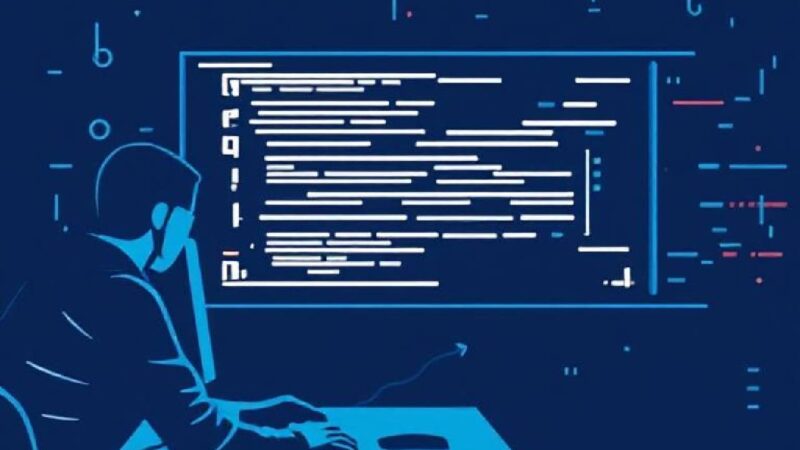In today’s fast-evolving job market, having technical skills can open doors to a wide range of career opportunities. Whether you’re looking to switch careers, upskill, or break into the tech industry, a coding bootcamp offers a fast-track route to mastering in-demand programming skills. These intensive, hands-on programs are designed to equip learners with real-world coding experience, helping them transition into roles in software development, web development, and beyond. By enrolling in a coding bootcamp, you can accelerate your career growth, gain industry-relevant expertise, and tap into a network of hiring partners eager for skilled tech talent.
With the increasing demand for tech talent, many aspiring professionals are turning to coding bootcamps as a fast and effective way to gain industry-relevant skills. Unlike traditional degrees, bootcamps offer an intensive, hands-on learning experience, focusing on practical programming skills, real-world projects, and job-ready expertise. These programs cater to beginners and career changers, providing structured training in software development, web development, data structures, and algorithms.
Many bootcamps also offer career support, including resume building, mock interviews, and networking opportunities with potential employers. The flexibility of online, part-time, and full-time formats allows learners to upskill without disrupting their current commitments. As a result, coding bootcamps have become a preferred pathway for those looking to break into tech, offering a cost-effective and time-efficient alternative to traditional education while aligning with industry hiring trends.
What is Coding Bootcamp?
A coding bootcamp is an intensive, short-term training program designed to teach individuals the essential skills needed for a career in software development and related tech fields. These programs focus on hands-on learning, real-world projects, and industry-relevant coding languages like Python, JavaScript, and Java. Coding bootcamps offer a fast-track alternative to traditional education, helping beginners and career changers transition into tech roles through structured, job-focused training.
How can coding bootcamp help?
- Accelerated Learning: Coding bootcamps provide a structured, fast-paced curriculum that helps learners acquire in-demand tech skills in weeks or months instead of years.
- Hands-on Training: Unlike traditional education, bootcamps emphasize practical learning through real-world projects, coding challenges, and hands-on exercises.
- Industry-Relevant Skills: Bootcamps focus on the latest programming languages, frameworks, and tools that align with current job market demands, such as Python, JavaScript, React, and cloud computing.
- Career Transition Support: Many bootcamps cater to career changers, offering step-by-step guidance to transition into tech roles, regardless of prior experience.
- Job Readiness: Bootcamps include resume building, mock interviews, and career coaching to prepare students for job placements in software development, web development, and related fields.
- Networking Opportunities: Students get access to industry professionals, tech mentors, and hiring partners, expanding their career prospects.
- Flexible Learning Options: Many bootcamps offer full-time, part-time, and online learning modes, allowing learners to upskill without quitting their jobs.
- Cost-Effective Alternative: Compared to traditional degrees, bootcamps provide an affordable and time-efficient way to gain market-ready coding expertise.
- High Hiring Potential: Employers value bootcamp graduates for their practical skills, problem-solving abilities, and ability to quickly adapt to real-world tech environments.
Career Paths You Can Pursue After a Coding Bootcamp
Application Developer
Application developers design, build, and optimize applications for mobile and desktop platforms. They work on coding, testing, and debugging applications to ensure smooth functionality. Their role also involves collaborating with UI/UX designers to create user-friendly interfaces and integrating applications with back-end systems.
Back-End Developer
Back-end developers are responsible for building and maintaining the server-side logic that powers websites and applications. They design and manage databases, handle API integrations, and ensure seamless data flow between the front-end and back-end. Their expertise includes programming languages like Python, Java, and Node.js, as well as database management systems such as MySQL and MongoDB.
Full-Stack Developer
A full-stack developer handles both front-end and back-end development, making them highly versatile. They design, develop, and maintain websites and applications, ensuring seamless user experiences while managing database interactions, API integrations, and server-side logic. This role requires proficiency in multiple programming languages and frameworks like HTML, CSS, JavaScript, React, and SQL.
Junior Developer
Junior developers assist senior developers in coding, testing, and troubleshooting software applications. They work on smaller tasks such as debugging, fixing bugs, and writing simple scripts while learning best practices in software development. This role serves as a stepping stone to becoming a full-fledged software engineer or specialized developer.
Software Engineer
Software engineers develop applications, systems, and other software solutions that meet user needs. They design software architecture, write optimized code, and test software for performance and security. This role requires strong problem-solving skills and knowledge of software development methodologies, such as Agile and DevOps.
Technical Support Specialist
Technical support specialists assist users with software and hardware issues, troubleshooting problems related to installation, configuration, and performance. They work with internal teams and customers to resolve technical concerns, ensuring smooth system operations. Their role may also involve documenting technical solutions and providing user training.
User Experience (UX) Designer
UX designers focus on enhancing user satisfaction by improving the usability, accessibility, and overall experience of websites and applications. They conduct user research, create wireframes and prototypes, and work closely with developers to implement designs that offer intuitive navigation and functionality.
User Interface (UI) Designer
UI designers specialize in creating visually appealing and user-friendly digital interfaces. They design the layout, color schemes, typography, and interactive elements of applications and websites to ensure a seamless user experience. Their role involves working with UX designers and developers to bring creative concepts to life.
Web Developer
Web developers build and maintain websites and web applications. They specialize in front-end development (creating the visual and interactive aspects) or back-end development (handling server-side operations). Web developers use languages like HTML, CSS, JavaScript, and frameworks like React or Angular to create responsive and functional websites.
Conclusion
An online coding bootcamp provides a structured, flexible way to gain in-demand tech skills, real-world experience, and job readiness. With expert mentorship, hands-on projects, and career support, it helps you transition into software development, web development, or other tech roles. Whether switching careers or upskilling, a coding bootcamp opens new pathways to success in the tech industry.









